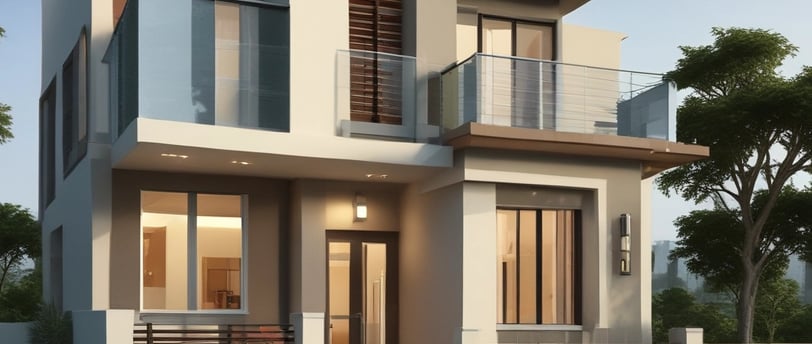Understanding the Role of Vastu in House Design and Planning in Bhopal
Understanding the Role of Vastu in House Design and Planning in Bhopal
2/10/20252 min read


Introduction to Vastu Shastra
Vastu Shastra, an ancient Indian architectural science, plays a significant role in the design and planning of houses, especially in regions like Bhopal. This traditional philosophy is grounded in the belief that the orientation and layout of spaces can influence the well-being of the inhabitants. By aligning structures with the laws of nature, Vastu aims to create harmonious living environments that promote health, prosperity, and peace.
The Importance of Vastu in Home Design
In Bhopal, where cultural heritage and modern architecture converge, the principles of Vastu are increasingly being acknowledged in home design. Implementing Vastu guidelines can enhance positive energy within spaces, ensuring that families thrive in their surroundings. Specific elements such as the direction of rooms, placement of doors, and positioning of furniture are meticulously planned to achieve optimal energy flow.
For instance, the placement of the main entrance is considered crucial. Ideally, the entrance should face either north or east to welcome auspicious energies. Similarly, the kitchen, which is often viewed as the heart of the home, should be placed in the southeast direction. These aspects are not merely aesthetic preferences but are deeply rooted in the Vastu philosophy aimed at fostering a balanced lifestyle.
Vastu Guidelines in Bhopal's House Planning
Residents of Bhopal often integrate Vastu Shastra into their house planning processes. Local builders and architects are increasingly recognizing the demand for Vastu-compliant structures. When planning a house, it's essential to consider site selection, building orientation, and the layout of functional spaces.
Moreover, the understanding of nature's elements—earth, water, fire, air, and space—further enriches the Vastu approach to home design. For example, incorporating water features like ponds or fountains in appropriate locations can contribute positively to the environment. Likewise, utilizing natural light and materials significantly influences the vibrancy of a household.
Furthermore, Vastu compliance extends beyond the mere physical environment; it delves into psychological aspects, promoting a sense of tranquility and security within the home. This holistic approach is vital in urban settings like Bhopal, where the hustle and bustle of city life can often lead to stress and disconnection from nature.
Conclusion
In conclusion, Vastu Shastra plays an integral role in house design and planning in Bhopal, effectively marrying the wisdom of ancient practices with contemporary architectural needs. By adhering to Vastu principles, homeowners can create spaces that not only serve functional purposes but also enhance the quality of life. The growing awareness and integration of Vastu in modern architecture symbolizes a deep-rooted respect for traditions while adapting to modern needs, making it an essential consideration for anyone beginning their journey in home planning.
